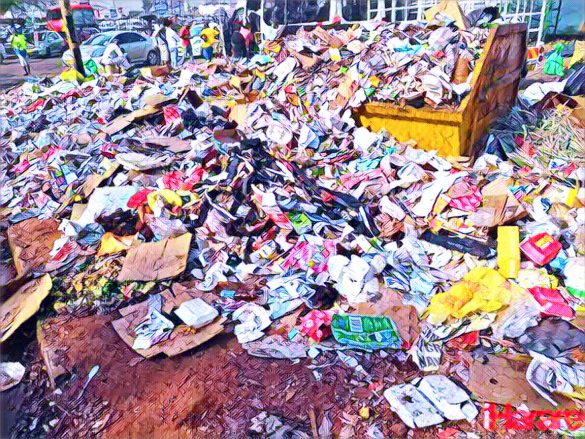In an urgent response to the escalating cholera crisis in Harare, the Zimbabwean government has initiated “Operation Chenesa Harare,” a comprehensive clean-up campaign aimed at halting the spread of this deadly disease. As of January 5, 2024, Harare and its environs have grappled with 15,571 suspected and 1,871 confirmed cases of cholera, resulting in 67 confirmed and 280 suspected deaths, despite 15,036 recoveries. The case fatality rate stands at a concerning 2.2%.
Health Minister Douglas Mombeshora, addressing the severity of the situation during a press conference, emphasized the necessity of this operation amid the increasing cholera cases. “Cholera, a disease stemming from poor hygiene and sanitation conditions, is deadly yet preventable. Our intervention aims to address these critical issues,” he stated.
The plan, propelled by the government’s commitment to improving public health, includes extensive garbage collection efforts throughout Harare and the allocation of treasury funds for water purification chemicals. Criticizing the City Council for its failure in garbage management, water provision, and sewer system maintenance, the government has taken charge to ensure better sanitation and clean water access.
The Environmental Management Agency (EMA) extends its efforts beyond Harare, working nationwide to enhance environmental health. A remarkable mobilization of resources, including contributions from the private sector, has been witnessed. “From January 5th to 12th, our goal is to clear all garbage in Harare,” Mombeshora declared.
To achieve this, the Civil Protection Unit (CPU) has coordinated 13 tipper trucks from the City of Harare, 14 refuse compactors from EMA, and additional equipment from private entities. This fleet, including six front and loaders and a back hole loader, has already moved 122 tons of garbage to the Pomona Dump site, demonstrating a proactive approach to the crisis.
Harare has been strategically divided into five regions for efficient garbage collection. Each region, with varying truck allocations based on the severity of cholera cases, covers critical areas from the central business district to the outskirts of Harare. This structured approach ensures targeted clean-up efforts where they are most needed.
The government is also fast-tracking the mobilization of resources for clean potable water provision. A significant drop in water supply from 350 to 200 mega litres a day exacerbates the situation, highlighting the urgent need for water purification efforts. “Improving water supply is crucial to prevent sewer system blockages and further spread of cholera,” Mombeshora added.
This decisive action plan, “Operation Chenesa Harare,” reflects the government’s dedication to containing and eliminating the cholera outbreak. By addressing core issues of sanitation, waste management, and clean water supply, the initiative marks a critical step in safeguarding public health and preventing future outbreaks.
As Harare confronts this public health challenge, the government’s efforts underscore the importance of swift, coordinated action in the face of such crises. This initiative not only aims to curb the current cholera outbreak but also sets a precedent for effective disease management and prevention strategies in Zimbabwe.


